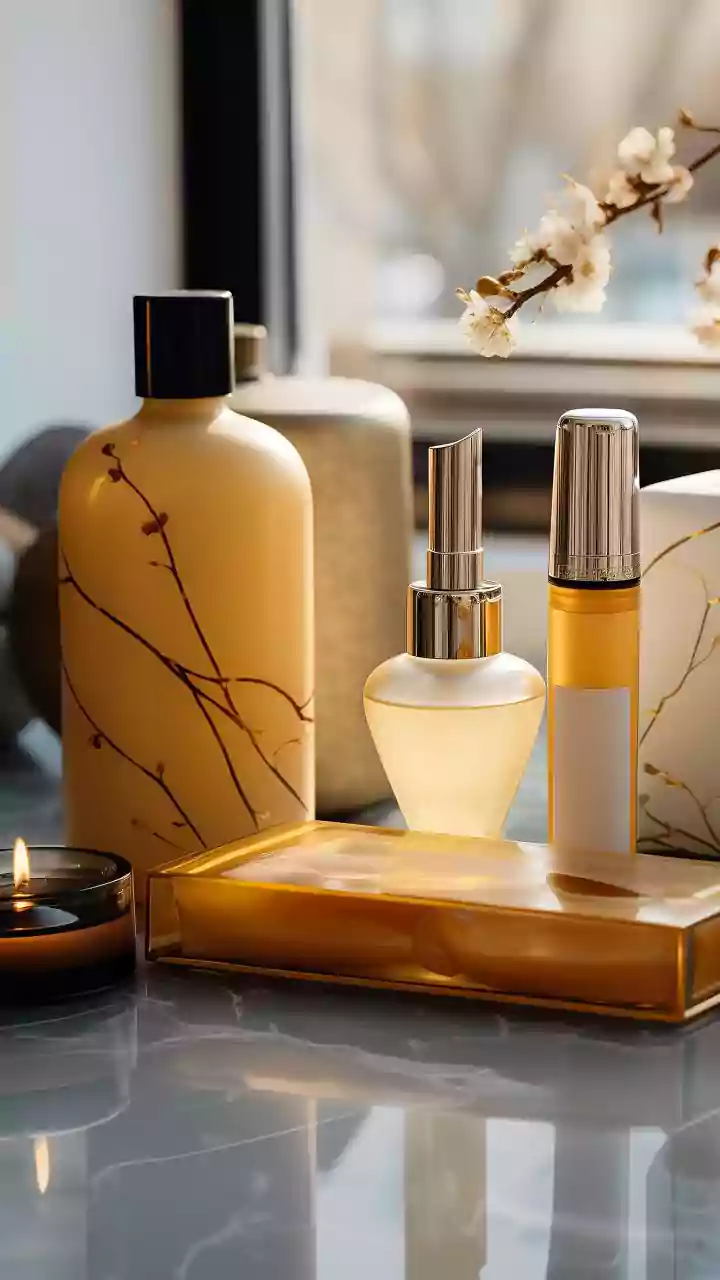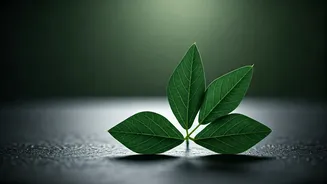Unveil 5 Herbal Facial Treatments for Glowing Skin. Dive into the realm of Ayurveda and natural remedies for radiant skin
In the bustling landscape of skincare, where chemical-laden products often reign
supreme, a growing number of individuals are turning towards the wisdom of Ayurveda and traditional herbal remedies for achieving radiant and healthy skin.
These natural facial treatments, passed down through generations, offer a gentle yet effective approach to skincare, harnessing the power of herbs and botanicals to nourish, heal, and rejuvenate the skin.
Let's explore five must-try herbal facial treatments that will leave you with a luminous complexion throughout the year.
Neem Face Pack: The Acne Avenger
Neem, a revered herb in Ayurveda, takes center stage as a potent remedy for acne-prone and oily skin. Its antibacterial and anti-inflammatory properties work wonders in combating acne-causing bacteria, reducing inflammation, and preventing future breakouts.
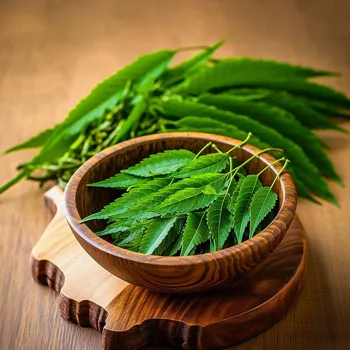
People in India often use it as a remedy at home. To create a neem face pack, grind fresh neem leaves into a paste, or opt for neem powder available at most herbal stores. Mix the neem paste with rose water or yogurt to form a smooth consistency.
Apply the pack evenly on your face and neck, leaving it on for 15-20 minutes before rinsing with lukewarm water. Regular use of neem face pack can significantly reduce acne, blemishes, and excess oil, leaving you with clear and healthy skin.
One can safely use it and see the change after a few days of regular use. It is good for skin.
Moreover, neem's benefits extend beyond acne treatment. Its antioxidant properties help protect the skin from free radical damage, preventing premature aging and promoting a youthful complexion.
Neem's ability to detoxify the skin makes it an excellent choice for those exposed to pollution and environmental aggressors. When using neem for the first time, perform a patch test on a small area of your skin to rule out any allergic reactions. If irritation occurs, discontinue use.
You should always be careful while using any new product for your face and body. If you notice any kind of issue you should immediately stop using it. This will help you find out if it is good for use or not. But this herb has been used for long period of time.
For an enhanced neem face pack, consider adding a pinch of turmeric powder, known for its antiseptic and skin-brightening properties, or a few drops of lemon juice, a natural exfoliant that helps lighten dark spots and blemishes.
Remember to use lemon juice sparingly, especially if you have sensitive skin, as it can be slightly abrasive. If you have persistent acne or skin concerns, consult a dermatologist or Ayurvedic practitioner for personalized guidance and treatment options.
People often ignore the face and its treatments. But taking care of your face is very important for a healthy lifestyle. The face is the first part that people notice. Therefore, you need to take care of your face so that it looks good.
Turmeric and Besan (Gram Flour) Ubtan: The Age-Old Skin Brightener
Turmeric and besan ubtan, a time-honored beauty secret in India, has been cherished for its ability to illuminate the skin and impart a radiant glow.
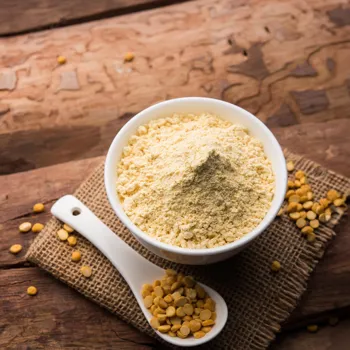
Turmeric, with its potent anti-inflammatory and antioxidant properties, helps reduce inflammation, fight free radicals, and protect the skin from sun damage. Besan, a natural exfoliant, gently removes dead skin cells, unclogs pores, and improves skin texture. Ubtan is a very famous home remedy.
To prepare this ubtan, mix 2 tablespoons of besan (gram flour), 1 teaspoon of turmeric powder, and enough rose water or milk to form a smooth paste. Apply the paste evenly on your face and body, leaving it on for 20-30 minutes until it dries slightly.
Gently scrub the ubtan off with circular motions, rinsing with lukewarm water.
The combination of turmeric and besan works synergistically to brighten the skin, fade blemishes, and even out skin tone.
Regular use of this ubtan can help reduce pigmentation, dark spots, and tan, leaving you with a brighter and more even complexion. In addition to its skin-brightening benefits, turmeric and besan ubtan also possesses anti-aging properties.
Turmeric's antioxidants help combat free radical damage, preventing wrinkles and fine lines. Besan's gentle exfoliating action stimulates collagen production, promoting skin elasticity and firmness. You should use it twice a week.
To customize your ubtan, you can add other beneficial ingredients, such as sandalwood powder for its soothing and anti-inflammatory properties, or honey for its moisturizing and antibacterial benefits.
Always perform a patch test before applying ubtan to your entire face and body, especially if you have sensitive skin. If you experience any irritation, discontinue use. For optimal results, use ubtan regularly as part of your skincare routine.
You can also apply it to your body as a pre-bath scrub for a rejuvenating and glowing effect. If you add it to your routine, you will soon notice the difference. Taking care of your skin should be your priority. Therefore, one must follow these good remedies.
You can ask your parents or grandparents about this. They must be knowing about this great home remedy. Ubtan is very good for skin.
Aloe Vera Gel: The Soothing Savior
Aloe vera, a succulent plant known for its healing properties, stands out as a versatile remedy for various skin concerns. Its gel, rich in vitamins, minerals, and antioxidants, offers a multitude of benefits, from soothing sunburns to hydrating dry skin. People often use it at their home.
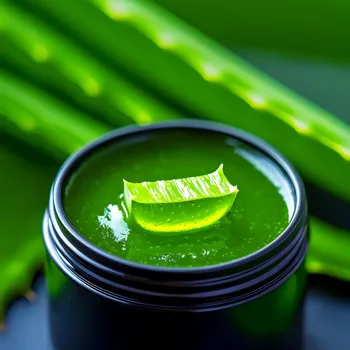
Aloe vera's anti-inflammatory properties help reduce redness, irritation, and swelling, making it an excellent choice for sensitive and acne-prone skin. Its moisturizing properties replenish lost moisture, leaving the skin soft, supple, and hydrated.
To use aloe vera for facial treatment, extract the gel from a fresh aloe vera leaf or purchase pure aloe vera gel from a reputable source. Apply the gel directly to your face and neck, allowing it to absorb completely.
Aloe vera gel can be used as a daily moisturizer, a soothing mask, or a spot treatment for blemishes. Its healing properties help accelerate the recovery of sunburns, minor cuts, and wounds.
Regular use of aloe vera gel can improve skin texture, reduce acne breakouts, and promote a healthy and radiant complexion. Beyond its soothing and moisturizing properties, aloe vera gel also boasts anti-aging benefits.
Its antioxidants protect the skin from free radical damage, preventing premature aging and promoting a youthful appearance. Aloe vera's ability to stimulate collagen production helps improve skin elasticity and firmness, reducing the appearance of wrinkles and fine lines.
It gives the skin hydration to your face.
For an enhanced aloe vera facial treatment, consider adding a few drops of lemon juice for its skin-brightening properties, or a teaspoon of honey for its moisturizing and antibacterial benefits.
Always perform a patch test before applying aloe vera gel to your entire face, especially if you have sensitive skin. If you experience any irritation, discontinue use. For optimal results, use aloe vera gel regularly as part of your skincare routine.
You can also apply it to your hair for a nourishing and conditioning effect. If you have an Aloe Vera plant at your home, you can cut and use it. Also, Aloe Vera gel gives a cooling effect to your skin. Therefore, you should apply it during summers.
Sandalwood Paste: The Traditional Cooling Agent
Sandalwood, with its distinctive fragrance and cooling properties, has been a staple in Indian beauty rituals for centuries. Its paste, derived from the heartwood of the sandalwood tree, offers a plethora of benefits for the skin.
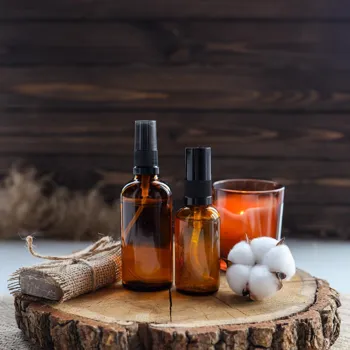
Sandalwood's anti-inflammatory properties help soothe irritated skin, reduce redness, and calm inflammation. Its antiseptic properties help prevent acne breakouts and promote a clear complexion. To prepare sandalwood paste, mix sandalwood powder with rose water or milk to form a smooth paste.
Apply the paste evenly on your face and neck, leaving it on for 20-30 minutes until it dries slightly. Rinse with cool water. Its aroma also calms the mind.
Sandalwood paste is particularly beneficial for oily and acne-prone skin.
Its astringent properties help tighten pores, reduce oil production, and prevent acne breakouts. Regular use of sandalwood paste can improve skin texture, reduce blemishes, and promote a smooth and matte complexion.
In addition to its anti-inflammatory and antiseptic properties, sandalwood paste also boasts skin-brightening benefits. It helps fade blemishes, dark spots, and pigmentation, leaving you with a more even and radiant complexion.
Sandalwood's cooling properties make it an excellent choice for soothing sunburns and reducing inflammation caused by heat exposure. It gives cooling sensation.
For an enhanced sandalwood paste facial treatment, consider adding a pinch of turmeric powder for its antiseptic and skin-brightening properties, or a few drops of honey for its moisturizing and antibacterial benefits.
Always purchase sandalwood powder from a reputable source to ensure its authenticity and purity. Be cautious of counterfeit sandalwood powder, which may contain harmful chemicals or irritants.
Always perform a patch test before applying sandalwood paste to your entire face, especially if you have sensitive skin. If you experience any irritation, discontinue use. These kinds of herbal remedies are very good for skin. It improves the skin and reduces marks.
Rose Water: The Gentle Hydrator
Rose water, a fragrant tonic derived from rose petals, has been cherished for its gentle yet effective skincare benefits. Its hydrating properties help replenish moisture, leaving the skin soft, supple, and radiant.
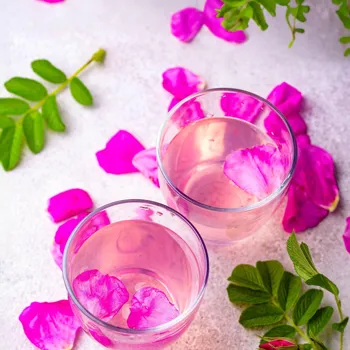
Rose water's anti-inflammatory properties help reduce redness, irritation, and inflammation, making it an excellent choice for sensitive and acne-prone skin. It has a very subtle fragrance. To use rose water as a facial treatment, simply spritz it directly onto your face and neck after cleansing.
You can also use it as a toner to balance the skin's pH level and prepare it for moisturizer. Rose water is very beneficial for skin. It keeps it hydrated.
Rose water can be used as a refreshing face mist throughout the day to hydrate and revitalize the skin.
Its gentle properties help soothe sunburns and reduce redness caused by heat exposure. Regular use of rose water can improve skin texture, reduce acne breakouts, and promote a healthy and radiant complexion.
Beyond its hydrating and anti-inflammatory properties, rose water also boasts anti-aging benefits. Its antioxidants protect the skin from free radical damage, preventing premature aging and promoting a youthful appearance.
Rose water's ability to stimulate collagen production helps improve skin elasticity and firmness, reducing the appearance of wrinkles and fine lines. It helps provide softness to the face.
For an enhanced rose water facial treatment, consider adding a few drops of glycerin for its moisturizing properties, or a teaspoon of honey for its humectant and antibacterial benefits. Always purchase pure rose water from a reputable source to ensure its authenticity and quality.
Be wary of rose water products that contain artificial fragrances or additives, as these can irritate the skin. Always perform a patch test before applying rose water to your entire face, especially if you have sensitive skin. If you experience any irritation, discontinue use.
Rose water is the most basic but very efficient ingredient in skincare.
By incorporating these five must-try herbal facial treatments into your skincare routine, you can unlock the secrets to radiant and healthy skin all year round.
Remember to choose the treatments that best suit your skin type and concerns, and always perform a patch test before applying any new product to your entire face.
Embrace the wisdom of Ayurveda and traditional herbal remedies, and embark on a journey towards a luminous complexion and overall well-being.

